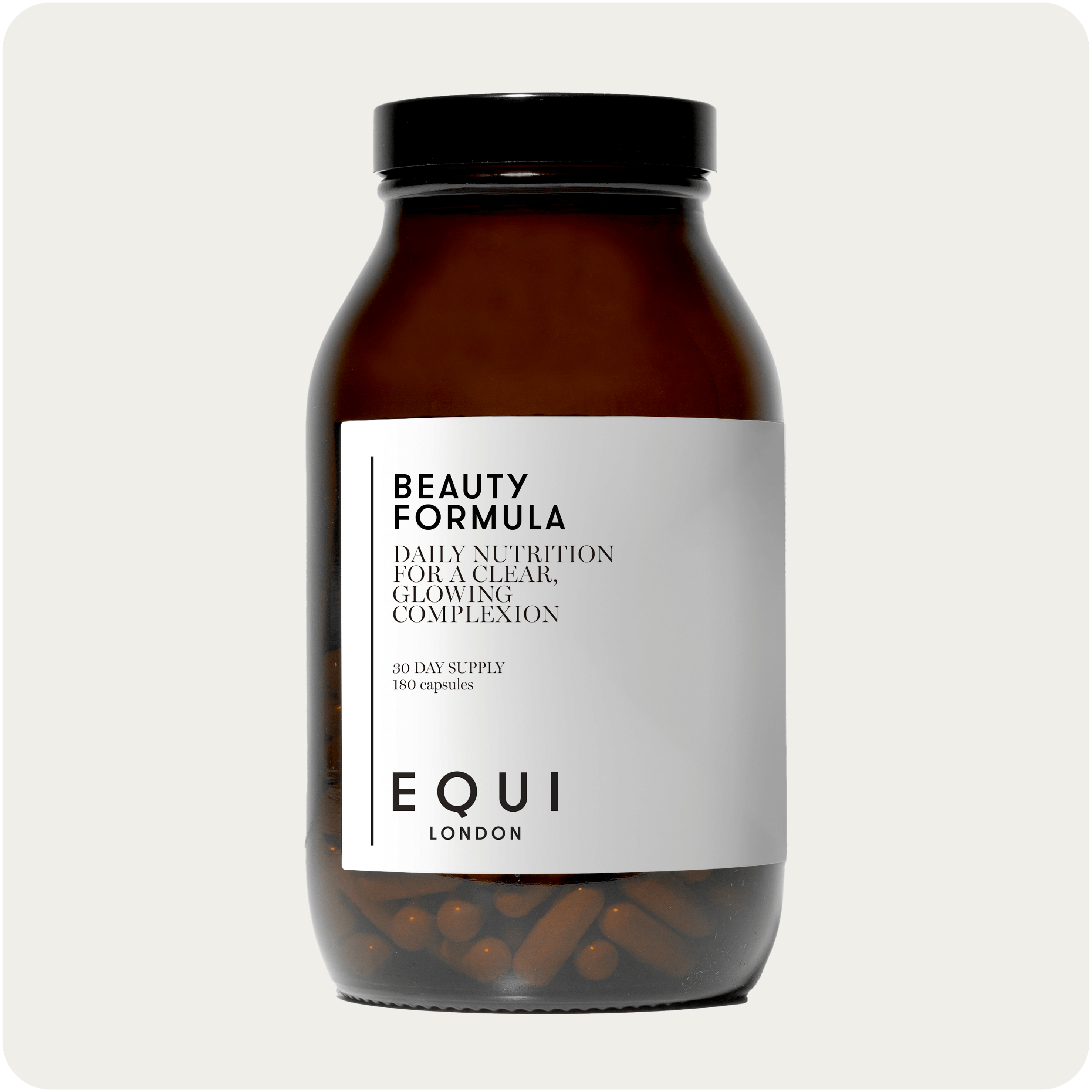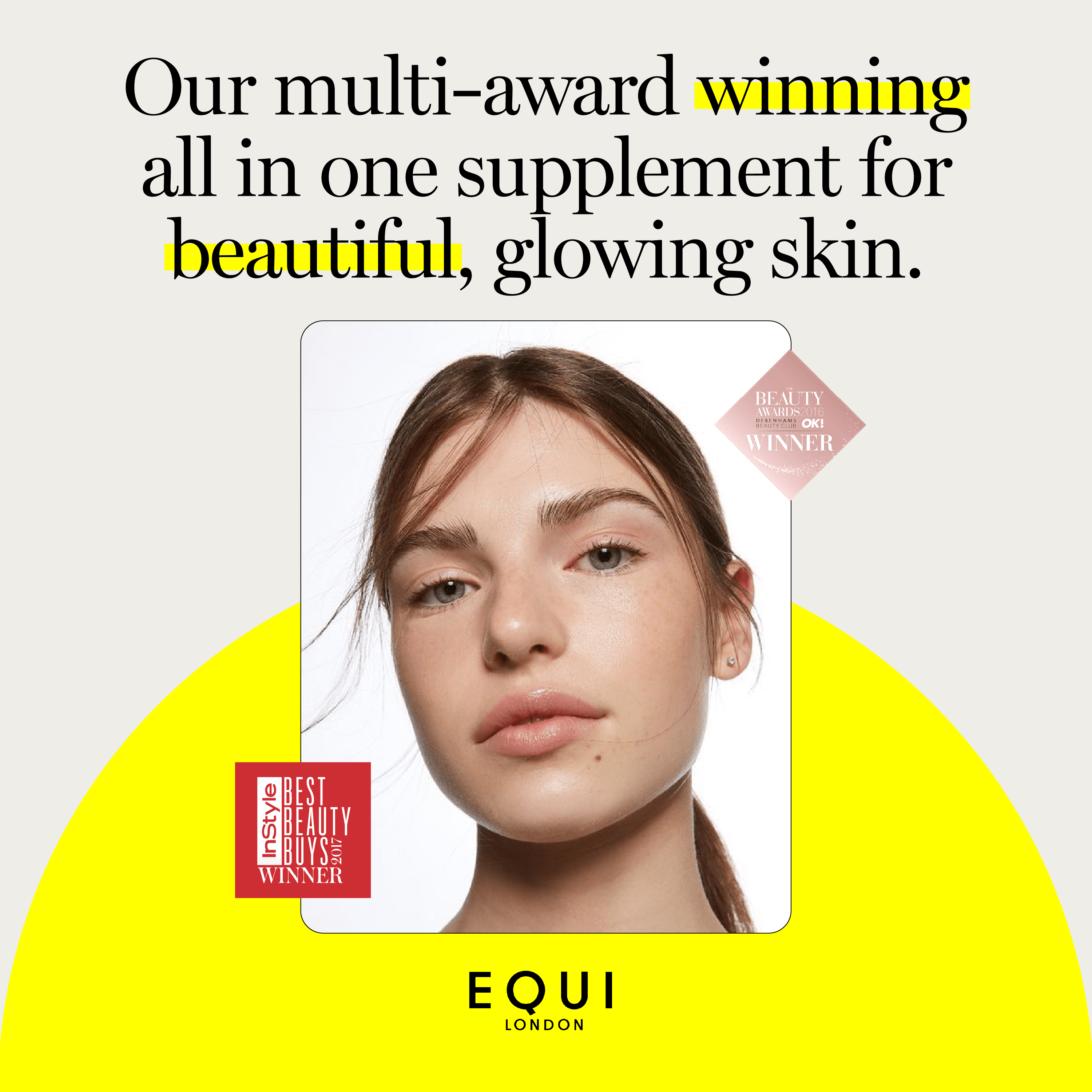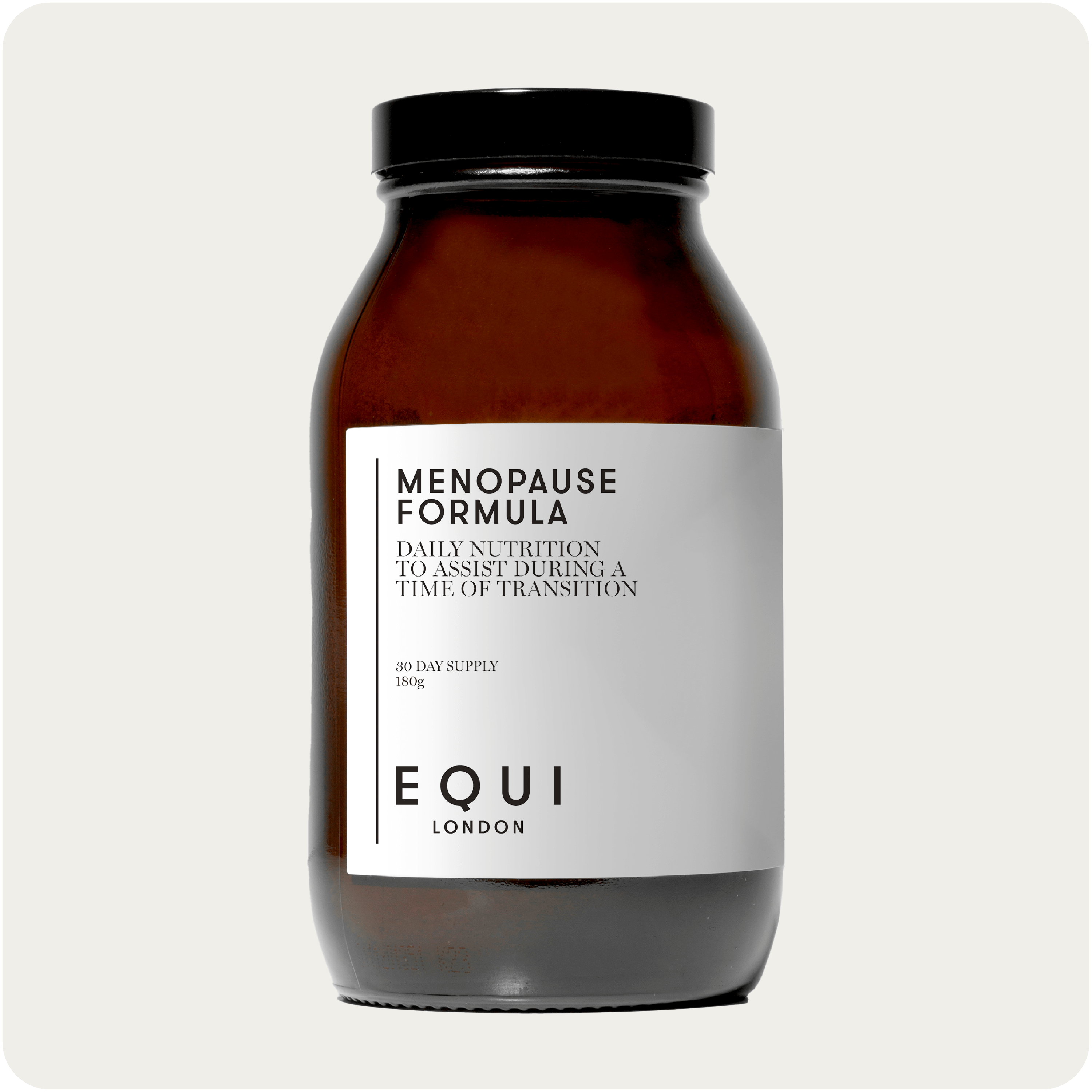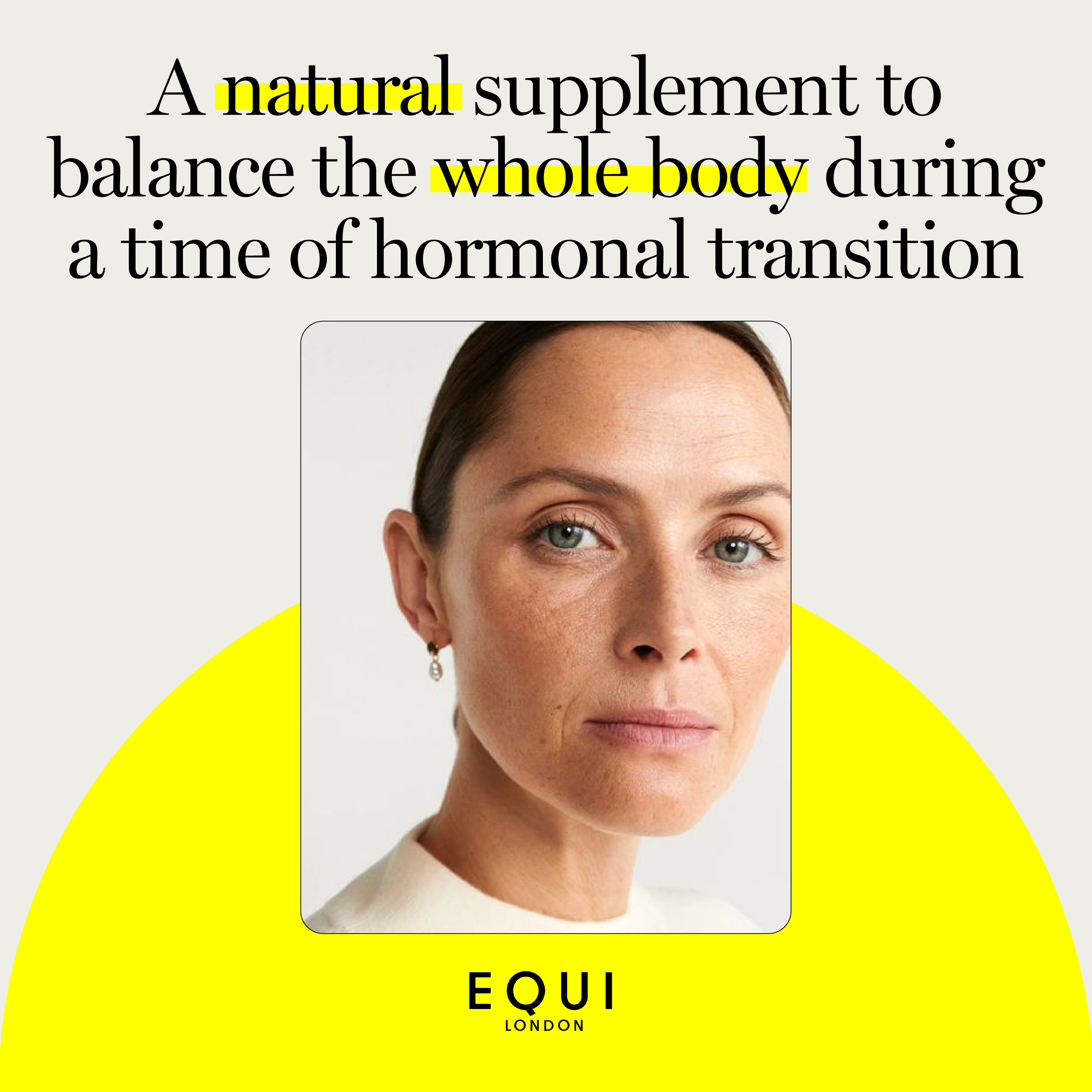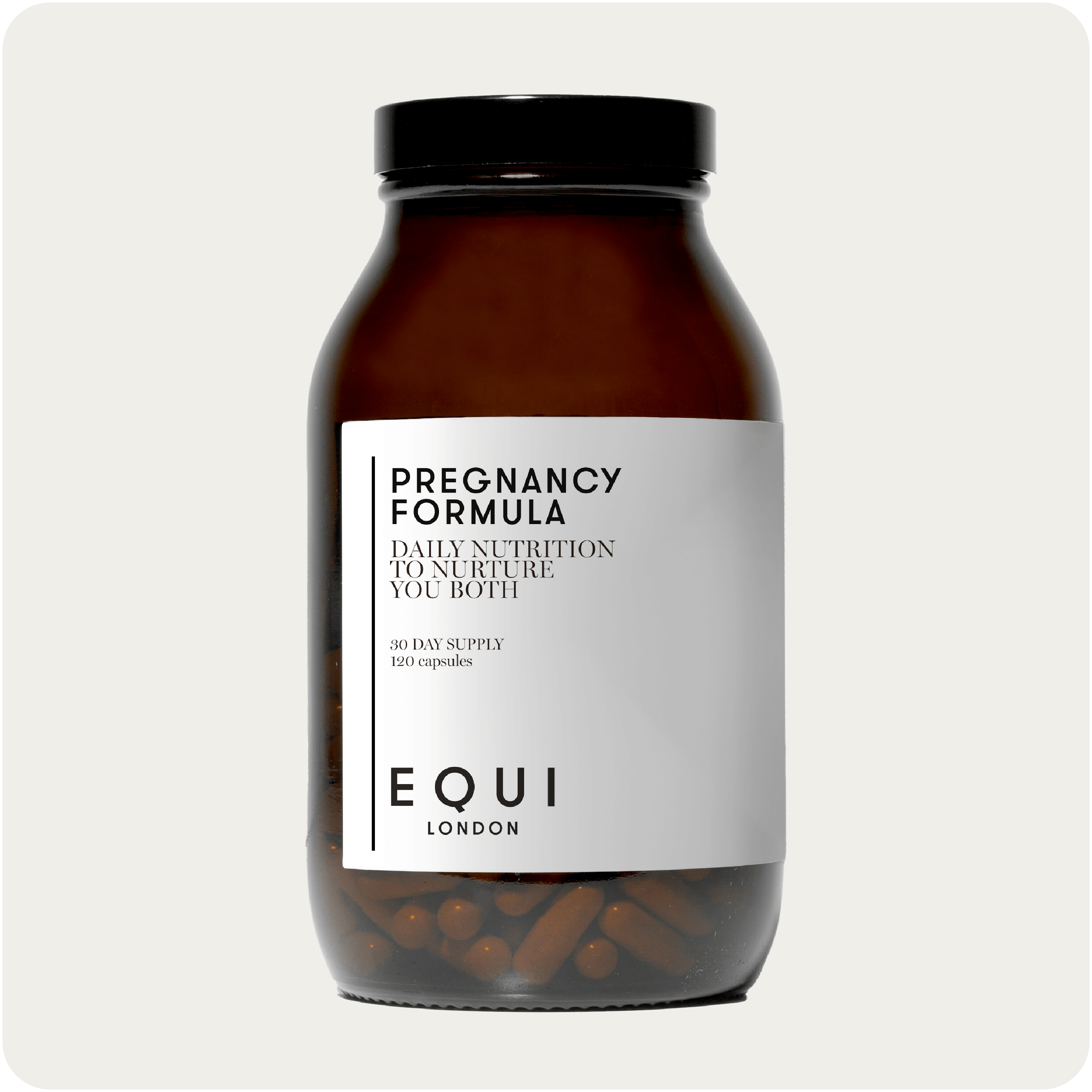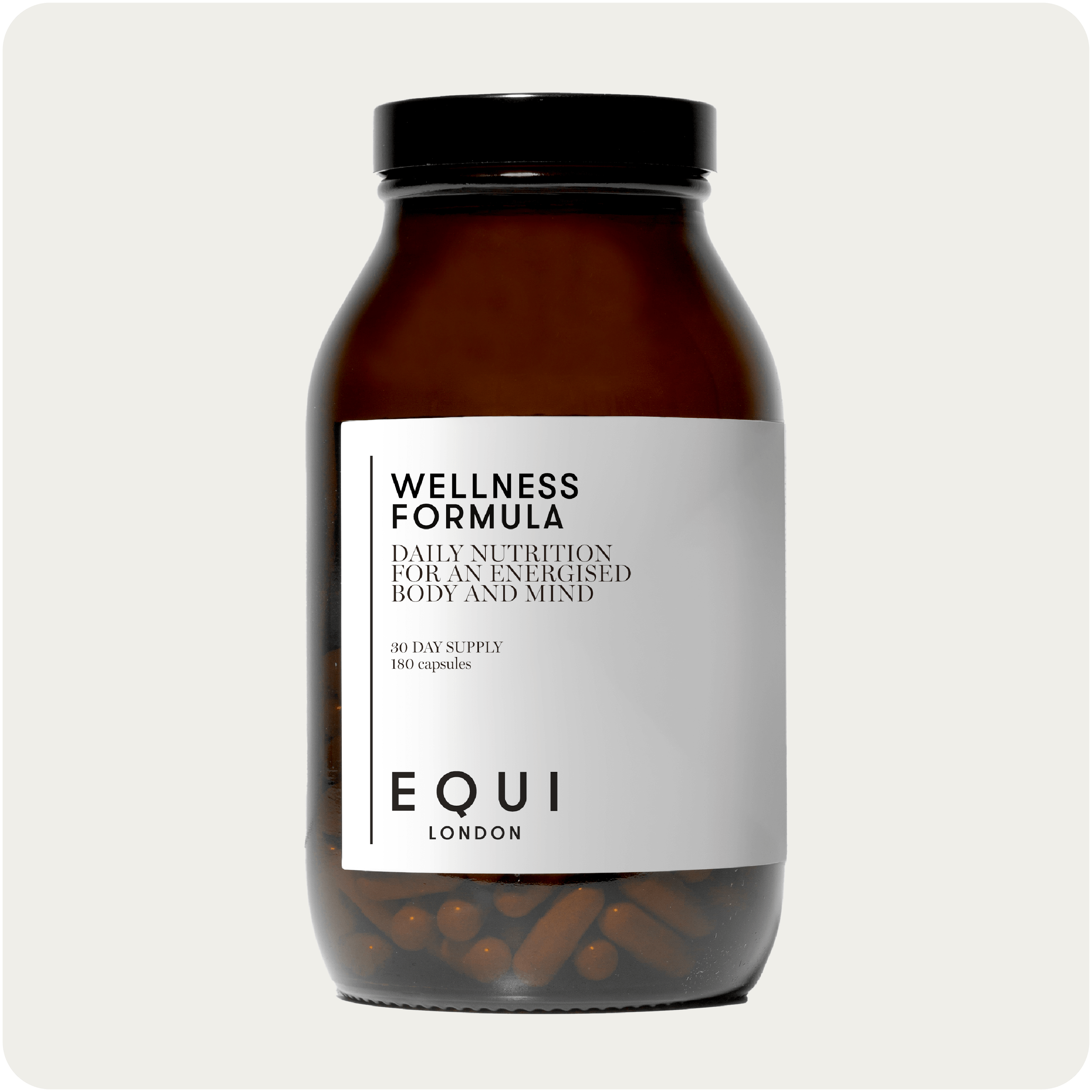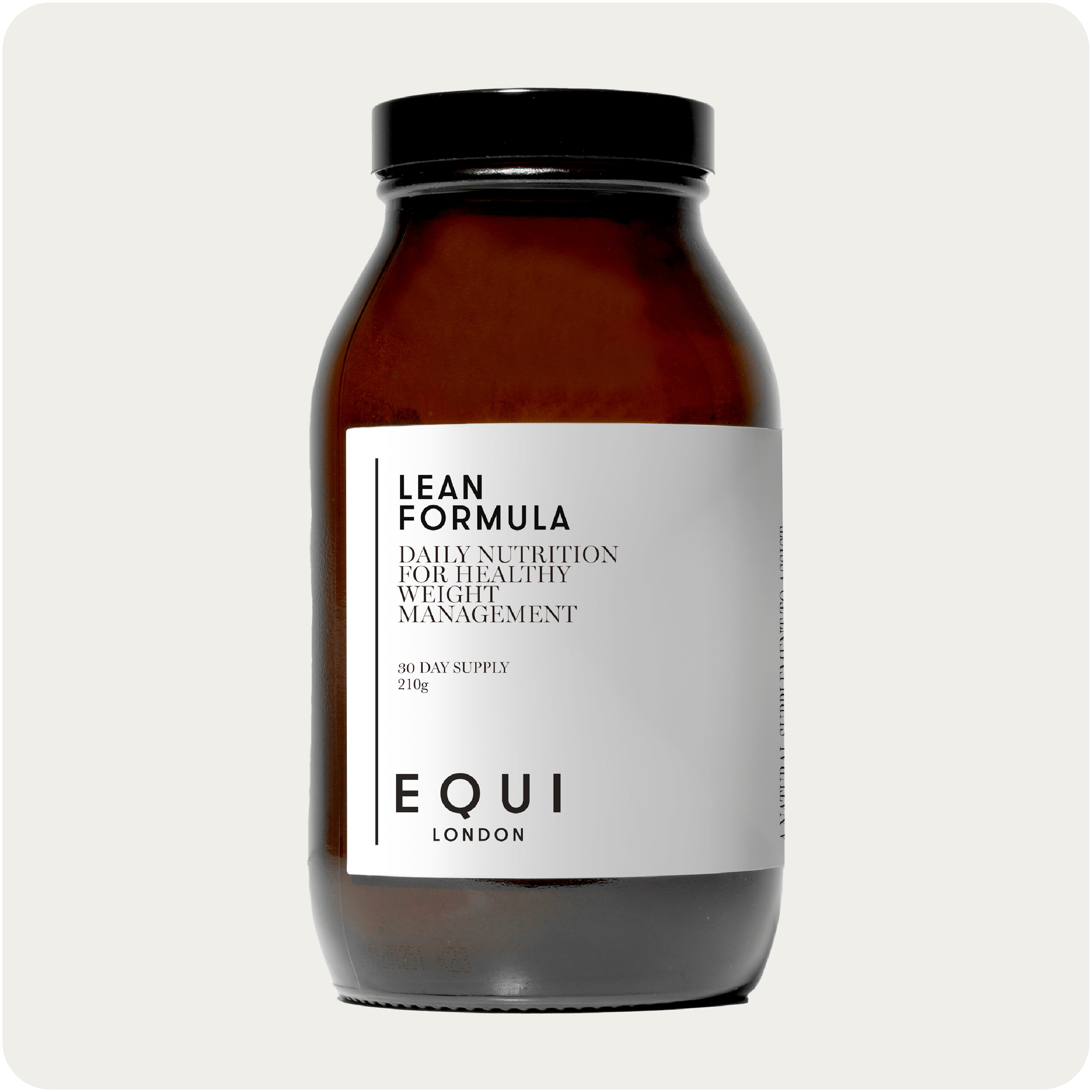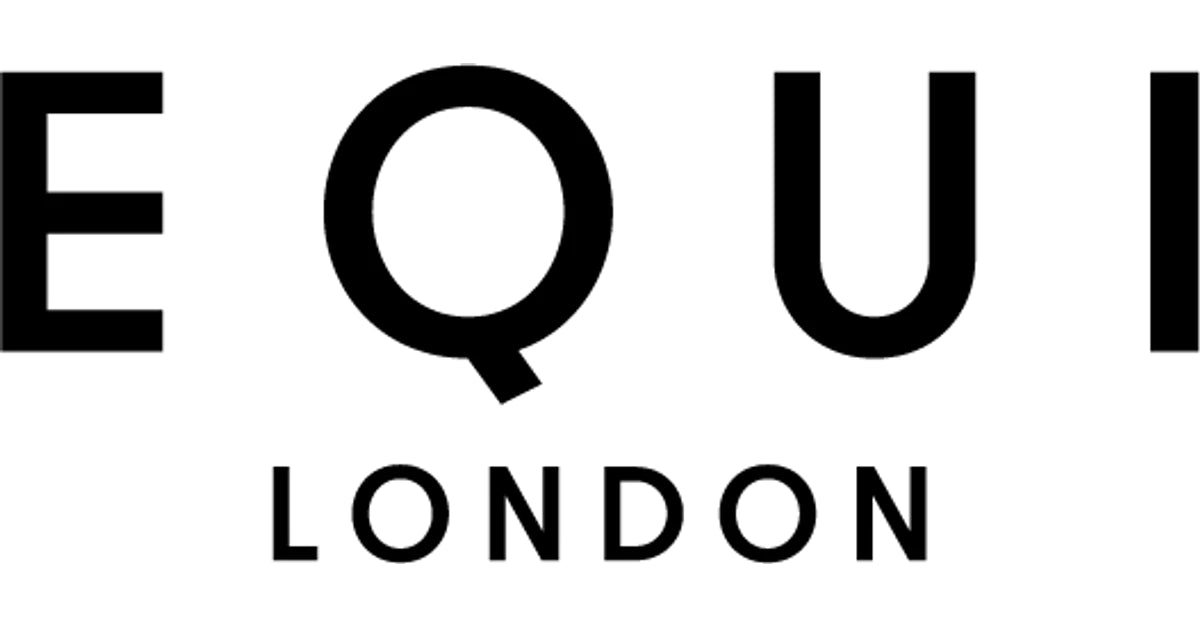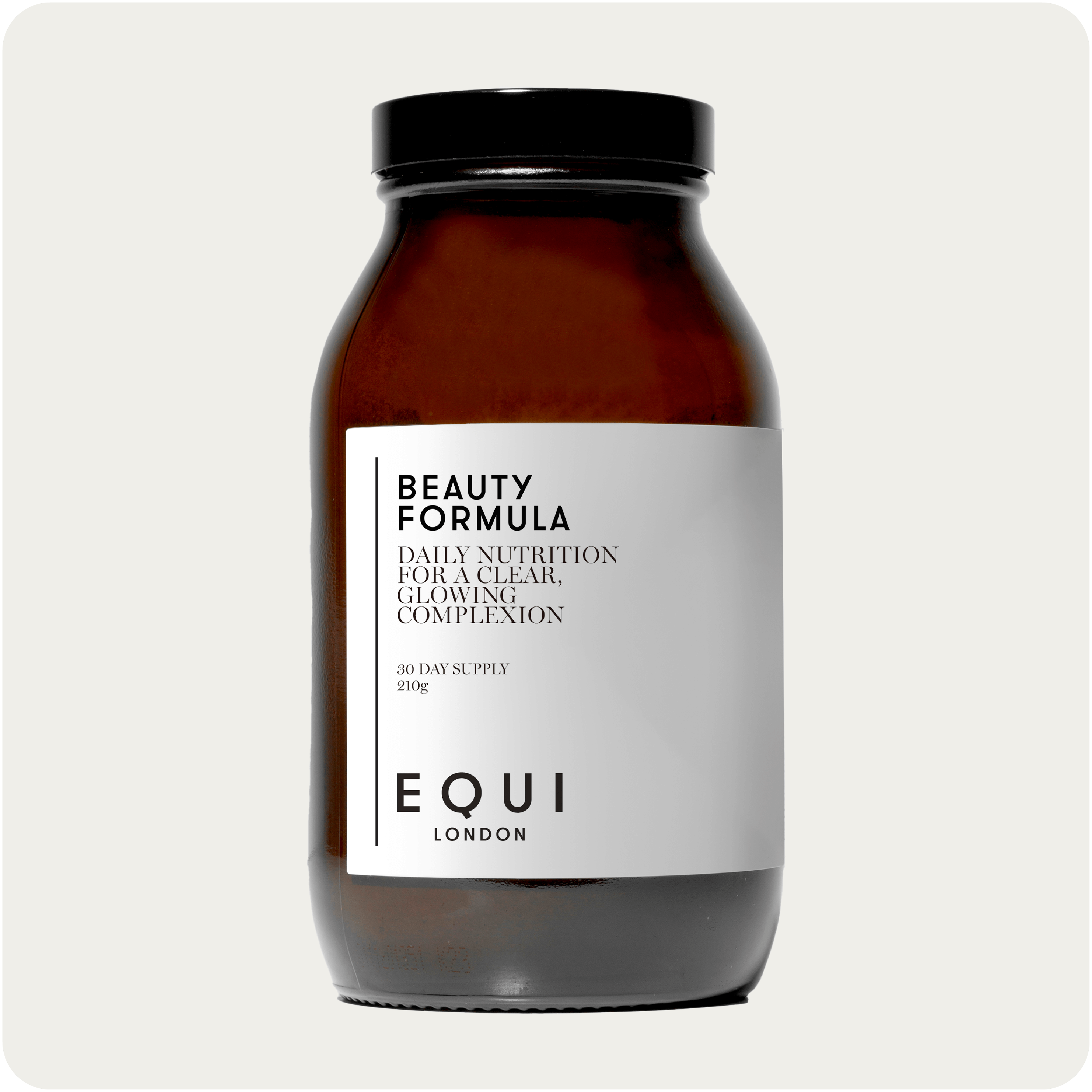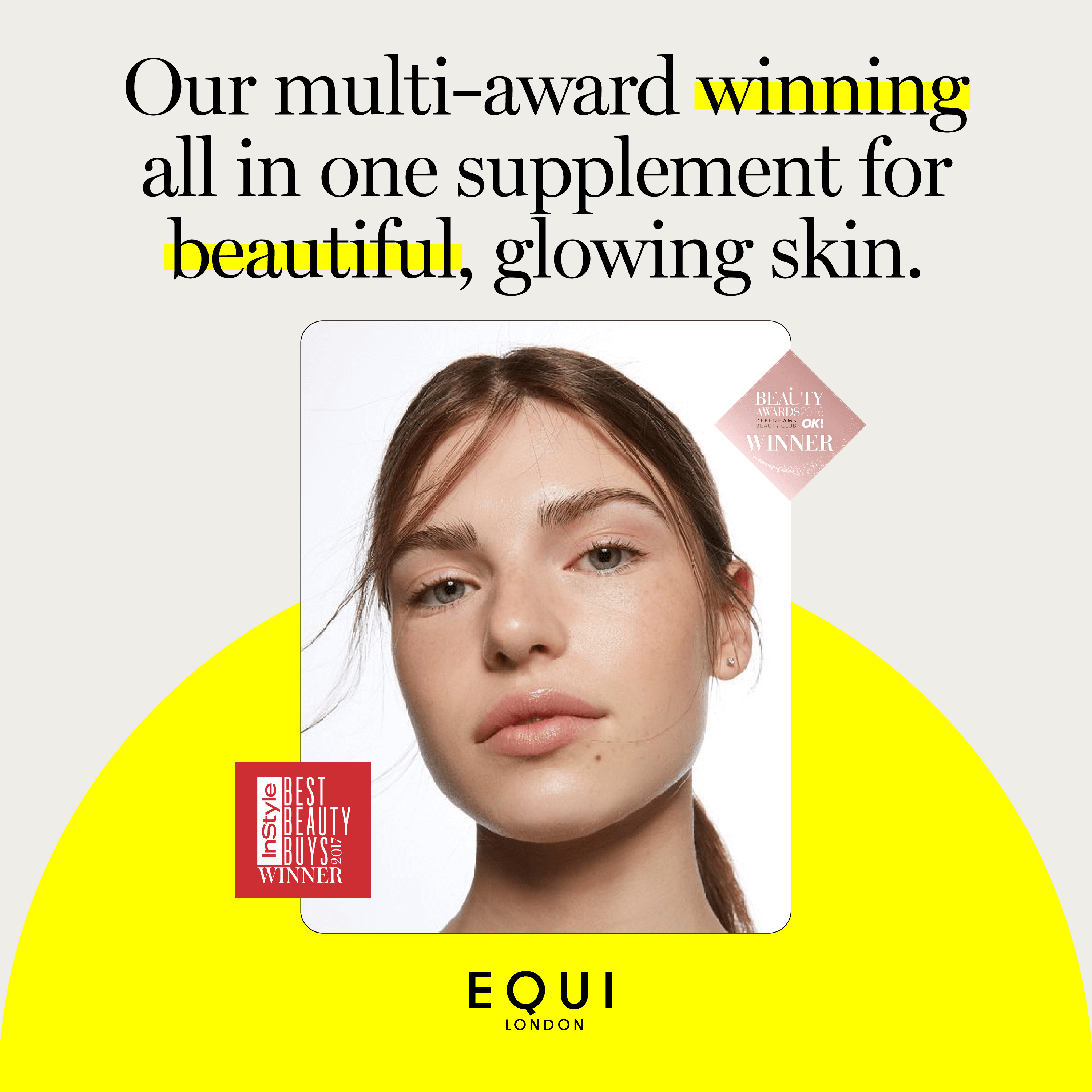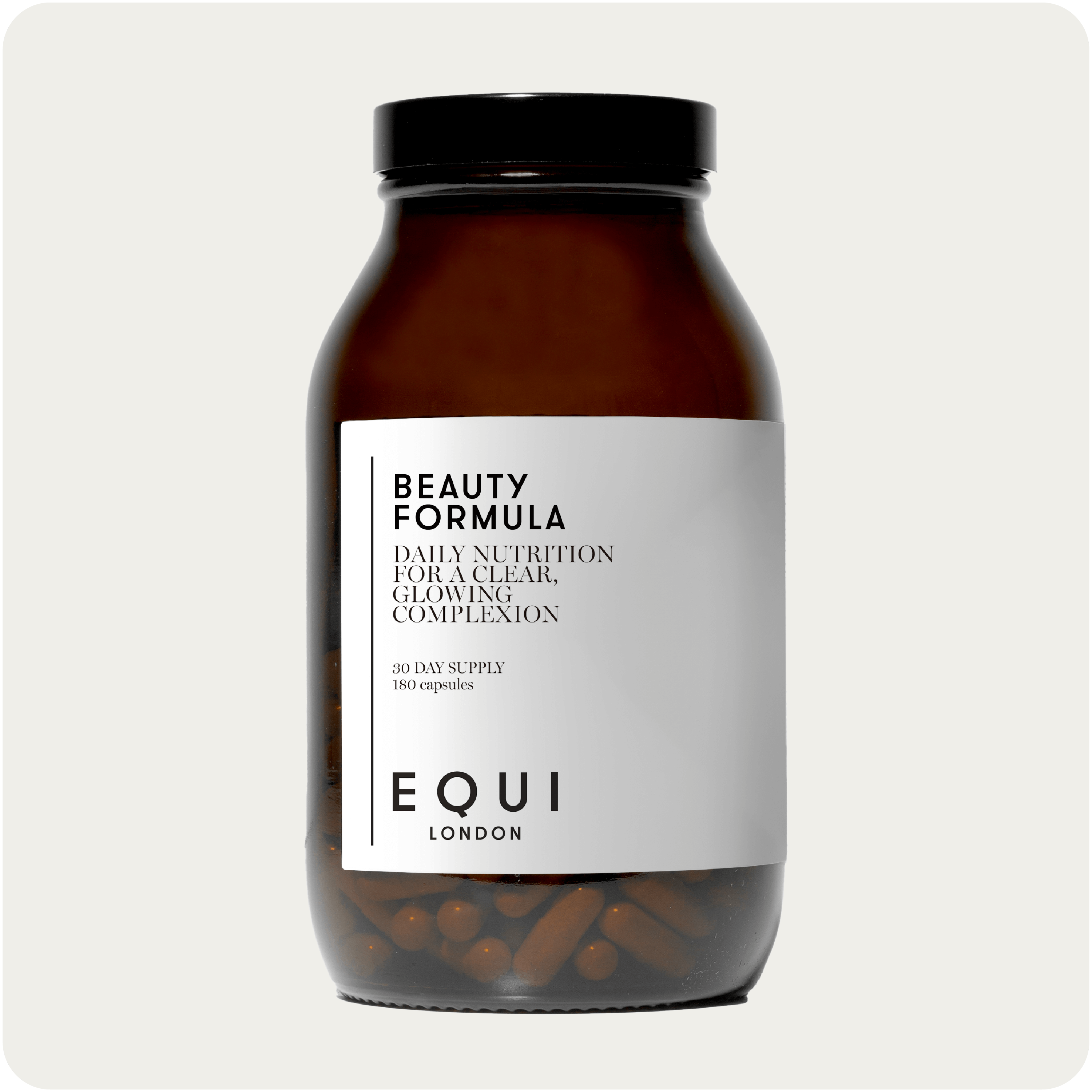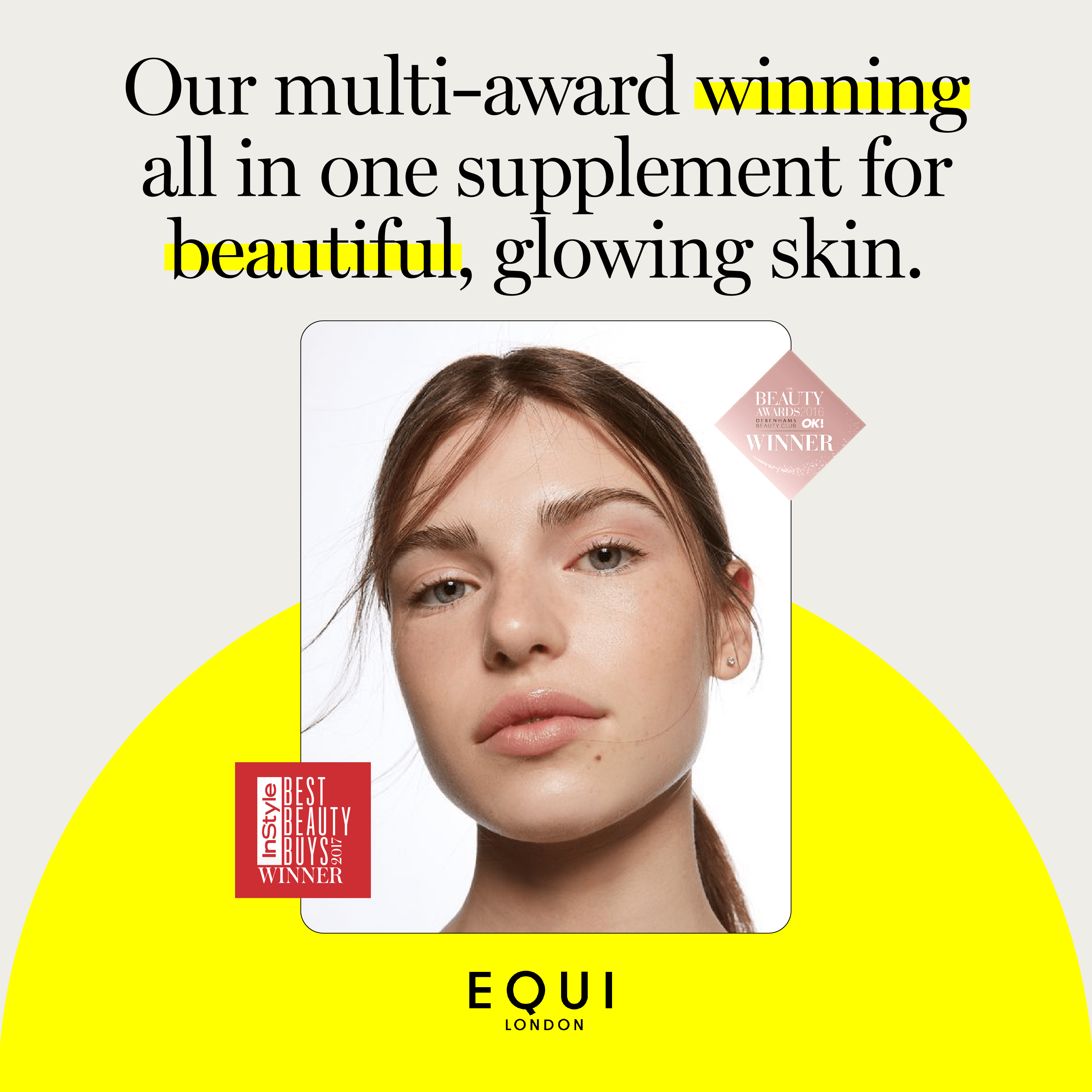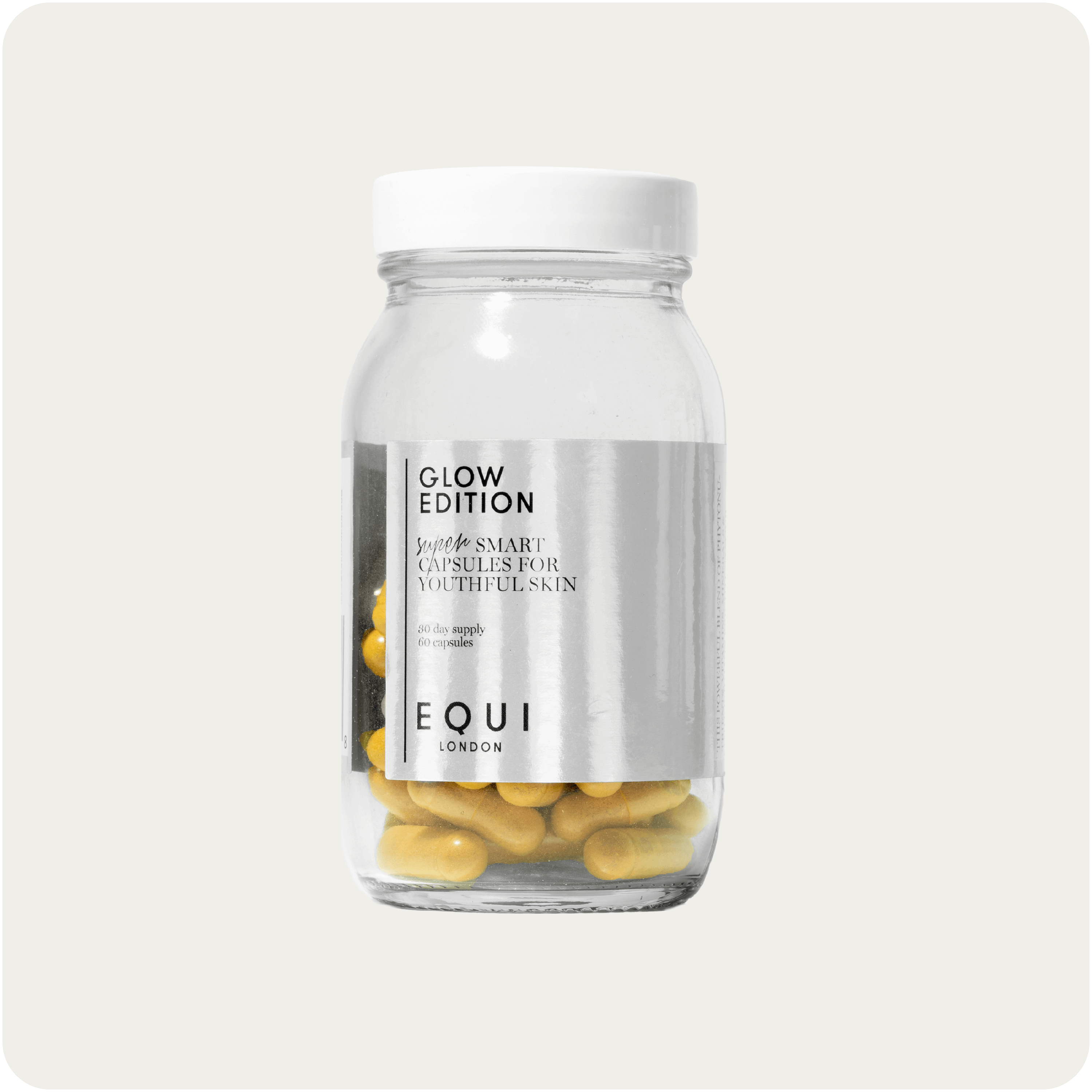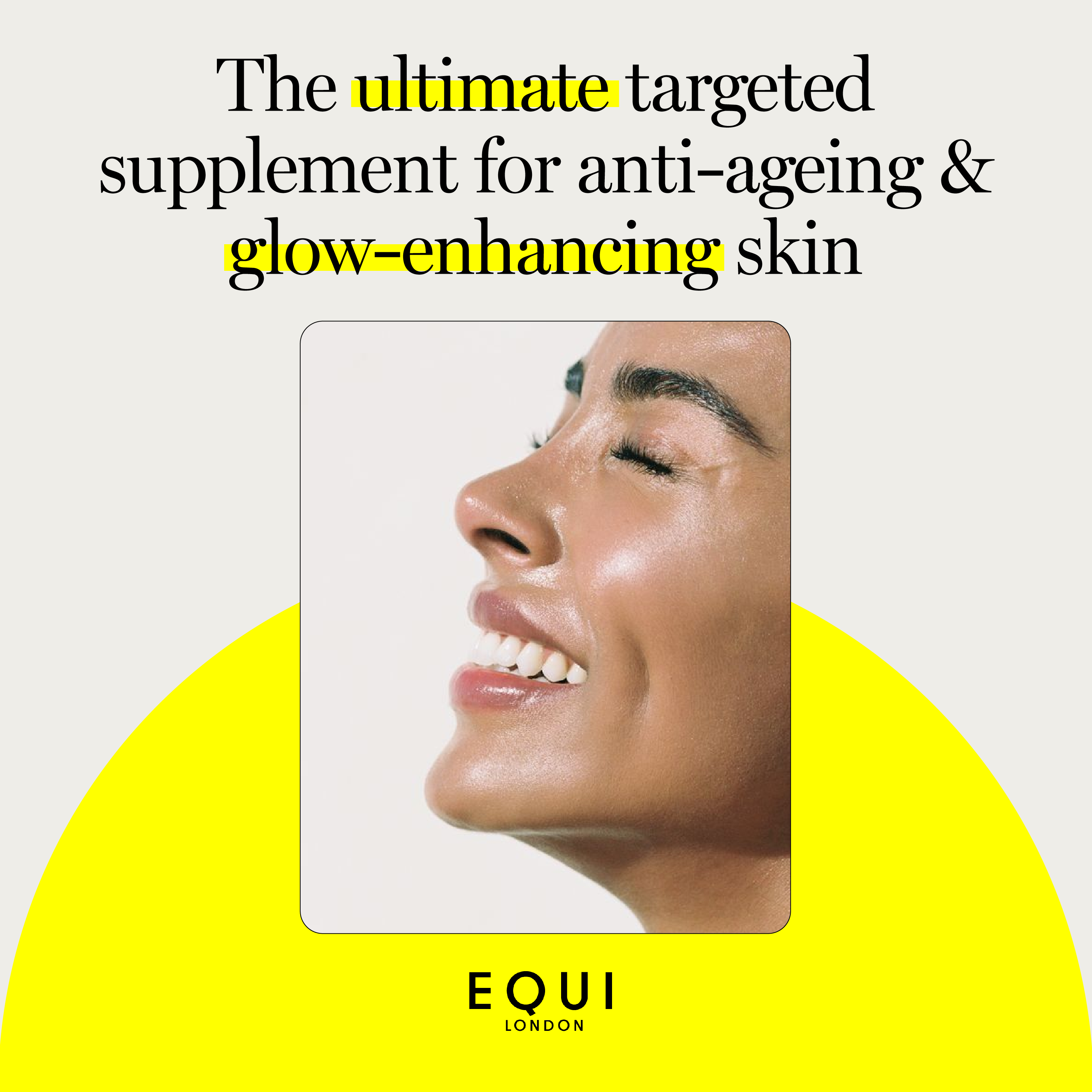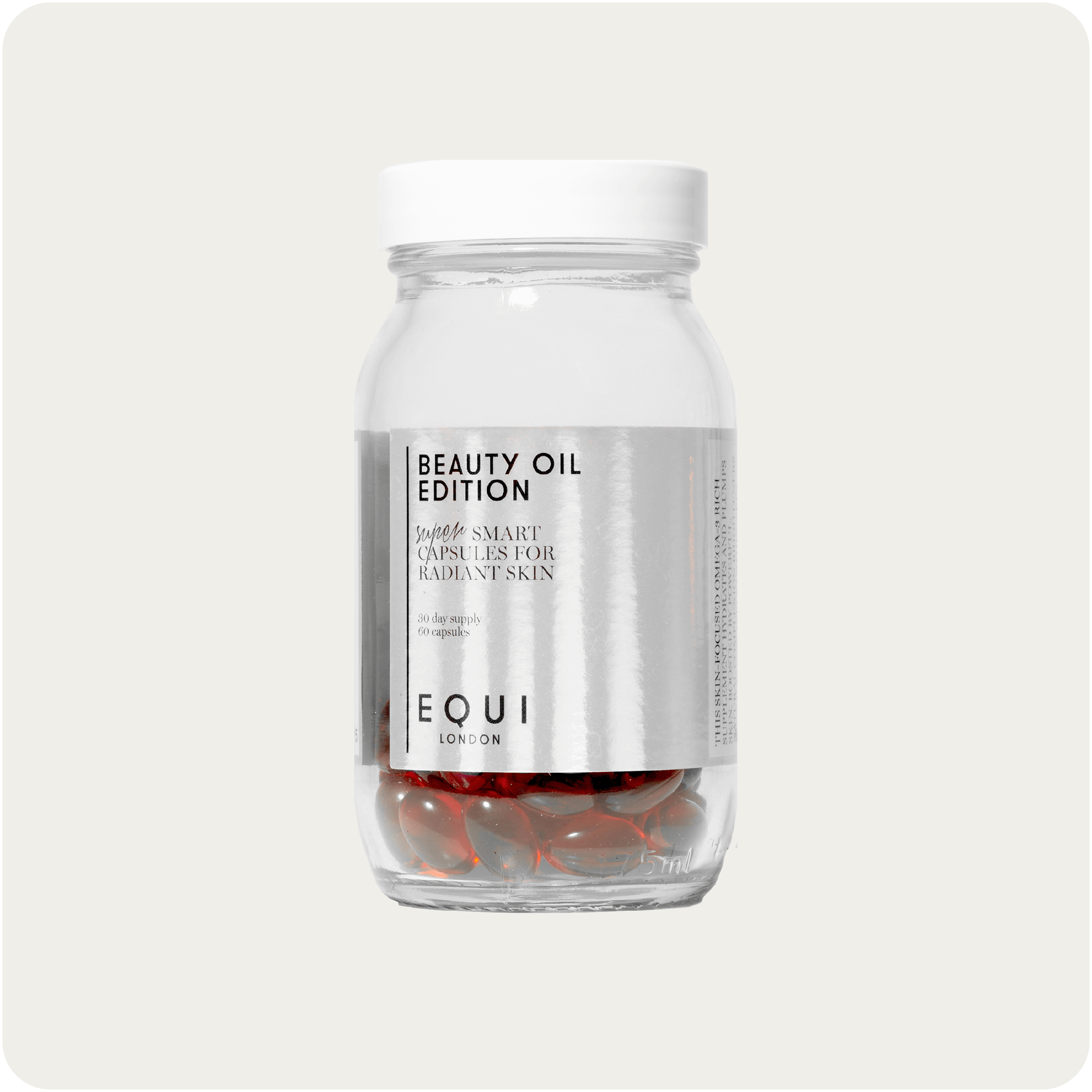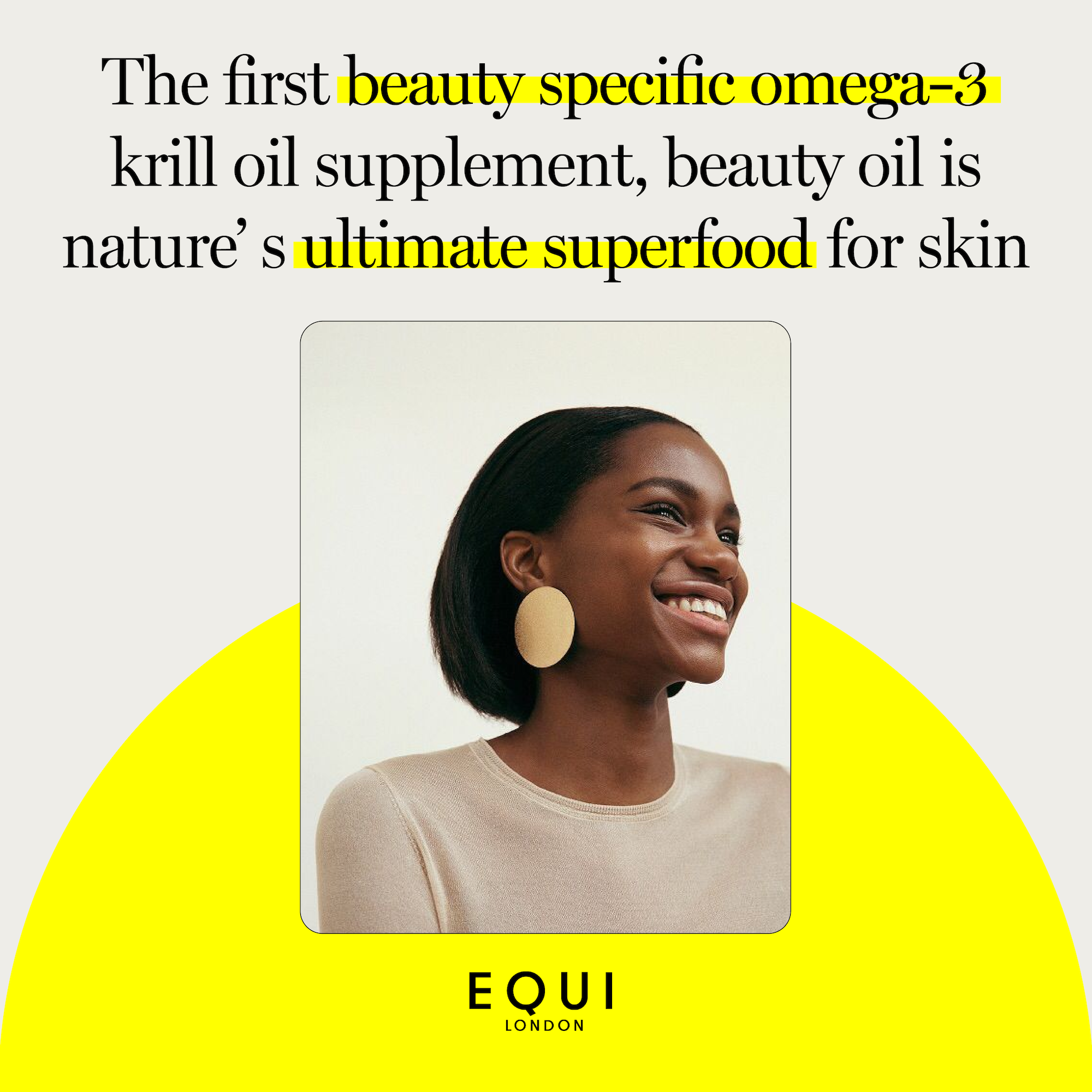Die Equi Summer Skin-Serie – Hinweise, Tipps und Tricks, um Ihre Haut auf den Sommer vorzubereiten

Eines der Probleme, die viele von uns davon abhalten, in den Sommermonaten nackte Haut zu tragen, sind Flecken und Hautunreinheiten. Hier beleuchten wir, was sie verursacht und was helfen könnte.
Was Flecken und Hautunreinheiten verursacht ?
Flecken und Hautunreinheiten können frustrierend und frustrierend sein für viele ein vertrauensschädigendes Problem. Es kann eine Reihe von Faktoren geben, die dazu beitragen. Hier untersuchen wir, was für Sie die Ursache des Problems sein könnte.
Hormone
Einige Hormone, wie zum Beispiel Androgene, können bei der Entstehung von Flecken und Hautunreinheiten eine Rolle spielen. Androgene sind eine Gruppe von Hormonen, zu denen auch Testosteron gehört, das normalerweise als männliches Hormon gilt. Während es für Frauen wichtig ist, einen niedrigen Androgenspiegel zu haben, können sie die Produktion von Talg erhöhen, einer öligen Substanz, die von den Talgdrüsen in der Haut produziert wird. Dies liegt daran, dass der Talg die Poren verstopft, was zur Entstehung von Flecken und Unreinheiten führt. Studien haben gezeigt, dass Frauen mit Akne tendenziell einen höheren Androgenspiegel aufweisen als Frauen ohne Akne (1). Und das ist nicht nur ein weibliches Problem, das Gleiche gilt auch für Männer – Menschen mit Akne haben einen höheren Testosteronspiegel (2). Diese Studien legen nahe, dass Androgene wie Testosteron eine wichtige Rolle bei der Entstehung von Flecken und Hautunreinheiten spielen. Es ist jedoch wichtig zu beachten, dass nicht jeder mit einem hohen Androgenspiegel Akne entwickelt. Andere Faktoren wie Genetik und Ernährung können ebenfalls eine Rolle spielen. Darüber hinaus können hormonelle Veränderungen, wie sie beispielsweise während der Pubertät, Schwangerschaft und Menopause auftreten, zu einer erhöhten Talgproduktion führen, die die Poren verstopfen und zu Flecken und Hautunreinheiten führen kann.

Imbalanced Microbiome
The gut is home to trillions of bacteria, which make up the gut microbiome. This plays a significant role in many aspects of health, including skin health. Some bacteria in the gut produce substances that can increase inflammation, causing skin issues and making it more prone to spots and blemishes. Studies have shown that people with acne tend to have different gut microbiomes than people without acne. For example, one study found that people with acne had higher levels of bacteria that produce inflammatory substances, known as lipopolysaccharides (LPS) (3). Another found that people with acne had lower levels of beneficial bacteria that produce substances that can help to protect the skin, such as short-chain fatty acids (SCFAs) (4). SCFAs have anti-inflammatory and anti-microbial properties. The combination of the two issues, may explain why some people are more prone to skin issues than others and how supporting the gut microbiome might be the answer.
Stress
Stress can have a negative impact on skin health and is a common root cause of acne. When you are stressed, your body releases hormones, such as cortisol, which can increase sebum production. Studies highlight several ways stress impacts the skin, leading to spots and blemishes. Studies have found that people who reported high levels of stress were more likely to have acne than people who reported low levels of stress (5). Stress can also delay the healing process of acne lesions (6). Women, suffering with stress and anxiety were likely to trigger hormonal changes in the body, leading to acne breakouts (7).
Genetics
Genetics play a significant role in acne. Studies have shown that people who have a family history of acne are more likely to develop the condition themselves. This is because they may have inherited genes that make them more susceptible to acne. One of the genes that has been linked to acne is the FLG gene. This is involved in regulating sebum production and those with mutations in the FLG gene are more likely to produce excess sebum, which can clog pores and lead to acne (8). Another gene that has been linked to acne is the LRP5 gene. This is involved in regulating the immune system and those with mutations in the LRP5 gene are more likely to have an overactive immune system, which can lead to inflammation and acne (9).
The Skin Microbiome
Bacteria can also play a role in acne. The bacterium Propionibacterium acnes (P. acnes) is found on the skin of most people. However, in people with acne, P. acnes can overgrow and produce inflammatory substances. This can lead to the development of spots and blemishes. Studies have shown that people with acne have higher levels of P. acnes on their skin than people without acne (10), which suggests that P. acnes may play a role in the development of acne.
How To Prevent Spots and Blemishes?
Since hormone balance and the gut microbiome play a significant role in the development of acne, supporting both is essential. There are also some key nutrients that are involved in helping to reduce acne.
Here are our top tips to support hormone balance and the gut, therefore preventing spots and blemishes:
- Probiotics – according to some studies, probiotics can reduce acne and blemishes by balancing the gut microbiome and reducing inflammation. In addition to rebalancing the gut microbiome, probiotics can also help improve the skin's barrier function. The skin barrier acts as a protective shield against environmental toxins, bacteria, and other harmful pathogens. When it's compromised, it can allow bacteria to penetrate the skin and cause acne. Studies have shown it does this by decreasing moisture loss and preventing inflammation (11). Topical probiotics may also help support the skins microbiome by bringing this back into balance and reducing inflammation. We are proud to share that Beauty Formula contains 1.5 billion probiotics including Lactobacillus and Bifidobacterium to support your gut microbiome, as well as amino acid glutamine which preserves the gut & skin barrier function.
- Support daily bowel movements – healthy bowel movements are key to ensuring that you aren’t accumulating and reabsorbing hormones and toxins in the body. Adding chia seeds, flax seeds, and a couple of kiwis into your diet per day and staying hydrated will help keep things moving. Another tip to support healthy bowel movements is by eating enough fibre. We need at least 30g of fibre per day to bulk the stool. Hit your daily intake by aiming for somewhere between 5-8 portions of vegetables and 2-3 portions of fruit per day. Legumes, nuts, and seeds are all a great source of both soluble and insoluble fibres which help support gut motility.
- Supplement your diet - omega-3 fatty acids, zinc, vitamin D and B6 all have promising studies to back up their use in the treatment of acne. Omega-3 has anti-inflammatory properties that may help reduce acne. Fish and fish oils are the richest source, but other good sources include nuts and seeds. Zinc has been shown to help reduce acne by reducing inflammation, regulating the production of sebum, and fighting the bacteria that causes acne. Zinc can be taken orally or applied topically to the skin. Similarly, when vitamin D levels are low, it can lead to increased sebum production and inflammation, both of which can contribute to acne. Supplementing with vitamin D can help to improve these conditions and reduce acne. Finally, B6 is essential for hormone production. It helps to regulate the production of testosterone, which can increase sebum production and lead to acne. B6 also helps to reduce inflammation, which can also contribute to acne. Studies have shown that people with acne are often deficient in vitamin B6 (12). The best sources include organ meats like liver, red meat, fish, dairy and eggs.
A study found that people who took a supplement containing omega-3 fatty acids, zinc, and vitamin D had a significant reduction in acne (13). Beauty Formula contains optimal levels of zinc, vitamin D and B6 and when combined with Beauty Oil, which contains omega-3 rich Krill oil, provides the perfect solution for those that wish to target their problematic skin.
What Else Might Help?
- Use products that contains hyaluronic acid, which helps to reduce the appearance of spots and blemishes and improve the overall appearance of the skin. Or better still, consume hyaluronic acid as well as using this topically. Read our recent blog on the role hyaluronic acid has from the inside out – more here.
- Green tea extract contains antioxidants that may help reduce inflammation and fight bacteria. One study found that people who took a green tea extract supplement had a significant reduction in acne (14). Swapping your coffee for a matcha latte would be an easy step to supporting your skin.
- Reduce cortisol (the body’s stress hormone) by getting enough sleep, exercising regularly, and practicing relaxation techniques. Studies back up some of these practices, which are known to help with spots and blemishes. A study found that participants who practiced relaxation techniques such as yoga and meditation, had a significant reduction in acne lesions (15). Another study found that exercise could improve the skin's appearance in people with acne, with fewer acne lesions and less severe inflammation than those who didn't exercise (16).
Elevate Your Skincare
- Ensure your skincare products are non-comedogenic, which means they won't clog pores. These products work by preventing the formation of comedones, which can lead to the development of whiteheads, blackheads, and pustules. These products are formulated with ingredients that do not block pores or cause excessive oil production, reducing the likelihood of acne breakouts. Ingredients that can clog pores include coconut oil, algae extract, soybean and wheat germ oil and carrageenan. It’s therefore best to avoid these ingredients in your skincare!
- Balance the skin's pH with a toner. The skin's pH is naturally slightly acidic, which helps to protect it from bacteria and other harmful substances. However, certain factors, such as using harsh cleansers or makeup, can disrupt the skin's pH balance, making it more susceptible to acne and other skin problems. Toners can help to restore the skin's pH balance by adding acids that help to neutralise any alkaline substances and disrupted the balance. Toners can also help to remove dirt, oil, and makeup residue that may be left behind after washing your face. This can help to prevent clogged pores, which can lead to acne. Some toners contain ingredients, such as aloe vera or cucumber, that have anti-inflammatory properties. Others contain exfoliating ingredients, such as glycolic acid or salicylic acid, which can help to remove dead skin cells and unclog pores.
- Exfoliation using gentle alpha-hydroxy acids (AHAs), like glycolic or lactic acid, can be a beneficial step in preventing acne. AHAs are chemical exfoliants that effectively remove the buildup of dead skin cells on the surface of your skin, which is one of the main causes of clogged pores leading to acne. By accelerating the skin's natural turnover process, AHAs promote the shedding of this outermost layer, reducing the chance of pore clogging. Unlike physical scrubs, which can cause irritation by unevenly scraping off skin cells, AHAs work on a microscopic level, effectively and gently removing dead skin cell buildup on the surface.
- Consider laser treatments. Laser treatments are a safe and effective way to reduce spots and blemishes. They can destroy the bacteria that causes acne, helping to clear up existing acne and prevent new acne from forming. They also work to shrink pores, which can help to prevent dirt, oil, and bacteria from building up and causing acne. Laser treatments can reduce inflammation and smooth the skin, which can help to improve the appearance of acne scars and stimulate collagen production. This can help to improve the overall appearance of the skin. However, it is important to note that laser treatments can cause side effects, such as redness, swelling, and bruising for a few days. If you are considering laser treatment for acne, it is important to talk to your dermatologist.
It is important to note that there is no one-size-fits-all solution for treating spots and blemishes. The best treatment for you will depend on the severity of your condition and your individual circumstances. If you are struggling with spots and blemishes, it is important to talk to your doctor or a dermatologist. They can help you develop a treatment plan that is right for you.
Click Here for references used to write this article.
Finden Sie Ihr Gleichgewicht – bestellen Sie noch heute!
Geld-zurück-Garantie. 30-Tage-Versorgung
